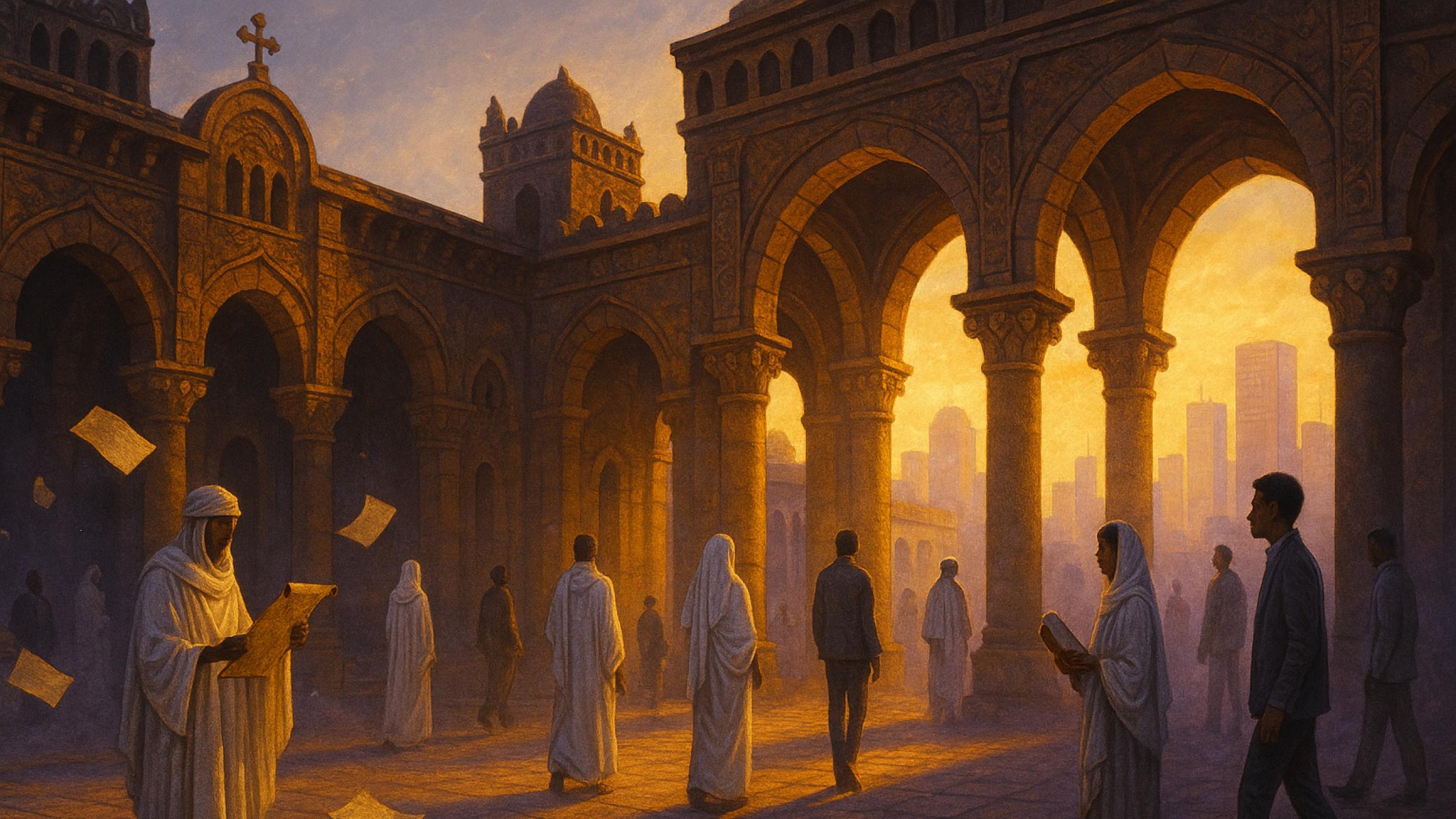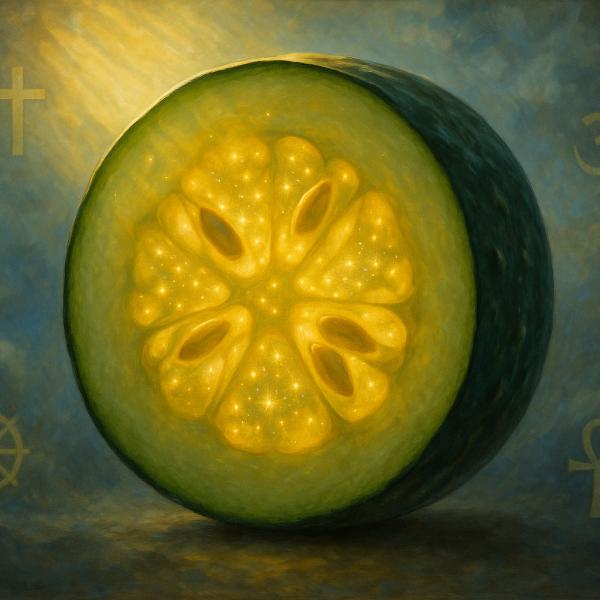
Questions We’ll Address
What is a eunuch? They had their ____ cut off?! Who was the Ethiopian eunuch? Were Daniel and his friends eunuchs? What does this have to do with Catholic priests, “gay Christians,” and modern sex and gender tensions? Did Jesus encourage this?
A quick caution: in this piece, we omit certain details, but given the subject, reader discretion is still encouraged.
What It Is and Why It Matters
Historically, a eunuch was a castrated man (sexual organ cut off), often employed in royal courts. But Jesus expanded this definition to include those who choose celibacy ”for the sake of the kingdom of heaven” (Matthew 19v12).
Understanding eunuchs helps us grasp how God’s kingdom transcends physical conditions and social barriers. It offers insights on identity, celibacy (choosing not to have sex), and inclusion.
Eunuchs in the Bible: Sweeping Overview
Old Testament law banned eunuchs from “the assembly of the LORD” (Deut 23), yet they served as trusted palace officials throughout Israel’s history—throwing down evil Queen Jezebel (2 Kng 9), rescuing the prophet Jeremiah from a cistern (Jer 38), managing royal harems in Persia (Est 1-2), and even serving as officials under King David (1 Chron 28).
Isaiah prophesied ”a name better than sons and daughters” (Isa 56) for faithful eunuchs. Daniel and his friends were likely made eunuchs when taken to Babylon (Dan 1), fulfilling prophecies about Hezekiah’s descendants (2 Kng 20, Isa 39).
Jesus added color, speaking of three types: those born that way, those made eunuchs by others, and those choosing celibacy ”for the kingdom of heaven” (Mat 19). The subject culminates with Philip baptizing the Ethiopian eunuch (Act 8).
The Ethiopian Eunuch: Everything We Know
The Ethiopian eunuch was Queen Candace’s treasurer (Candace is likely a title not a name—the queen being Amanitore). He was a God-fearing Gentile who’d traveled to Jerusalem to worship despite being excluded from full Jewish religious participation. When Philip found him reading Isaiah 53 on the Gaza road, the eunuch couldn’t understand the ”suffering servant” passage. Philip explained it referred to Jesus, leading to immediate baptism.
This Spirit-orchestrated encounter represents a pivotal moment: one of the first Gentile converts and a demonstration that the gospel transcends ethnic, social, and physical barriers. After baptism, Philip was supernaturally transported away while the eunuch ”went on his way rejoicing.” Early church tradition suggests his conversion helped establish Christianity in Ethiopia, making this brief encounter historically significant for the gospel’s spread to Africa.
The Ethiopian Orthodox Church says his name was Simeon Bachos and traces its origins directly to his conversion. “Kush” is referenced several times in the Bible, and it maps to modern-day Sudan and Ethiopia.
The Ancient Reality: Power Through Paradox
In the ancient world, eunuchs were marginalized and empowered at the same time.
The process was often fatal, with survival rates of 10-30% due to [let’s spare the details]. Survivors faced lifelong health consequences: severe muscle weakness (testosterone is crucial for muscle mass), bone density loss, depression, and other hormonal complications.
Most importantly, they couldn’t produce offspring, making them perfect for empires obsessed with protecting royal bloodlines. You might think they had low ambition given these health complications, but some were very ambitious (even scheming, like characters in movies).
Eunuchs in Historical Empires
The great empires of the ancient Near East—Assyria, Babylon, Persia, and Egypt—all employed eunuchs in high ranks. They served as treasury officials, harem (quarters for the royal’s women) guards, military commanders, and trusted advisors. They often controlled access to the king or emperor. Sometimes they directly received huge financial gain (tribute).
In China, eunuch Wei Zhongxian (1568-1627) controlled the Ming Dynasty for nearly a decade, even having temples built in his honor. The Byzantine Empire saw eunuchs like Basil Lekapenos effectively rule as regent, while the general Narses reconquered Italy for Justinian.
In the Ottoman Empire, the Chief Black Eunuch (the Kızlar Ağası) often wielded more day-to-day power than viziers (~prime ministers). And yes, historical records are clear that the Empire divided eunuchs by race, with Black eunuchs typically ranking higher than White ones. [1]
Why Were Eunuchs Excluded In Old Testament Law?
Deuteronomy 23:1 (”No one whose testicles are crushed … shall enter the assembly of the LORD”) reflected ancient Israel’s ritual purity framework. Approaching God required bodily ”wholeness” as a symbol of spiritual completeness.
Importantly, eunuchs were uncommon in Israel itself. Like many other laws, the prohibition likely served to distinguish Israelite worship from surrounding pagan cultures. The ”assembly of the LORD” was the covenant community gathered for worship, meaning they were excluded from formal religious gatherings, not necessarily all community life.
Did King David Have Eunuchs?
The Hebrew word ”saris” (סריס) also creates ambiguity—it can mean either ”eunuch” or ”court official.” When David had ”saris” (1 Chron 28v1), these may have been inherited from Saul or adopted from neighboring empires as Israel expanded. However, throughout Israel and Judah’s history, there were repeated failures to remain distinct from other nations, often adopting foreign practices that God had forbidden. Even if they were literal eunuchs, this would match Israel’s pattern of rejecting God’s design and becoming like surrounding empires.
The Revolutionary Isaiah Prophecy: Honor For Eunuchs
Yet Isaiah prophesied:
”To the eunuchs who keep My Sabbaths, who choose what pleases Me and hold fast to My covenant, I will give them, in My house and within My walls, a memorial and a name better than that of sons and daughters; I will give them an everlasting name that shall not be cut off.”
This was revolutionary—a spiritual legacy “better than” that of even biological offspring. The “I am a dry tree” metaphor (Isaiah 56v3) transforms into flourishing life. In a modern society that cares far more about personal fulfillment than family and heritage, it’s difficult for us to understand how significant this was.
Harsher Realities For Eunuchs
Many eunuchs were prisoners of war—forcibly made eunuchs as a form of humiliation and control. Others were slaves, children sold by desperate families, or victims of political punishment. Even those who achieved court positions lived with constant physical pain, social stigma, and dependence on their rulers’ favor.
Isaiah’s prophecy would have been especially meaningful to these marginalized survivors, offering divine acceptance to those whom society had brutalized and discarded.
This prophecy shows God’s plan was always moving toward radical honor-giving and inclusion based on the cross of Jesus, not physical status or bloodline.
Celibacy and Spiritual Eunuchs
When Jesus speaks of those who ”made themselves eunuchs for the sake of the kingdom of heaven,” (Matt 19v12) he’s not advocating physical castration but voluntary celibacy. This teaching provides the foundation for Christian celibacy traditions.
Catholic theology embraces this interpretation, seeing priestly celibacy as a spiritual calling that allows undivided devotion to God’s service. Modern Catholic theology interprets this verse as foundational for priestly celibacy, though historical evidence shows many early priests were married. [2]
This isn’t about lacking something. In the mysterious “upside-down kingdom” of God, it’s possessing a divine gift: the ability to serve without the divided interests that family life requires. Paul echoes this in 1 Corinthians 7, preferring singleness for those called to it.
Conclusion and Relevance For Today: Handle with Care
Modern discussions about gender identity often reference biblical eunuchs, particularly Jesus’ mention of those ”born that way.” However, we must be careful not to impose modern categories and assumptions on ancient texts. This applies to both sides of the culture wars, as Scripture is often weaponized for personal agendas.
There is plenty of debate on if contemporary transgender, intersex, or asexual identities meaningfully correspond to ancient eunuch categories. There’s much more to say on this topic, and we’ll leave that for another piece. For now, we encourage wise consideration over the all-too-common quick battle positions that aren’t very deep or nuanced.
The authentic Biblical truths related to eunuchs are powerful, beautiful, and challenging for both the most radical LGBTQ+ advocate and the most radical conservative.
What’s clear is that eunuchs in Scripture represent those who fall out of conventional categories…and God explicitly honors them. Whether physically altered, naturally infertile, middle-aged single, or voluntarily celibate, those who might seem “excluded” find themselves given “a name better than sons and daughters.”
For followers of Jesus, this means approaching questions of identity, celibacy, and inclusion with both biblical faithfulness and Christ-like compassion and humility. The God who welcomed the Ethiopian eunuch continues to welcome all who seek Him.
Footnote Extra: Was Daniel a Eunuch?
The question of whether Daniel and his friends were made eunuchs in Babylon remains debated, though evidence suggests they likely were. Nebuchadnezzar placed them under Ashpenaz, "the chief of his eunuchs" (Dan 1v3), and a century earlier, Isaiah had prophesied that Hezekiah's descendants would "become eunuchs in the palace of the king of Babylon" (2 Kng 20v18, Isa 39v7). Ancient empires routinely castrated captured royalty to eliminate dynastic threats. While the text never explicitly mentions it, the historical context and prophetic prediction strongly support this interpretation.
Citations
[1] Hathaway, Jane. The Chief Eunuch of the Ottoman Harem: From Africa to the Heart of Islam. Oneworld Publications, 2018. https://www.worldcat.org/title/chief-eunuch-of-the-ottoman-harem-from-african-slave-to-power-broker/oclc/1020266094
[2] Benjamin John, Clerical Celibacy in Scripture and Tradition, https://benjaminjohn.substack.com/p/clerical-celibacy-in-scripture-and






